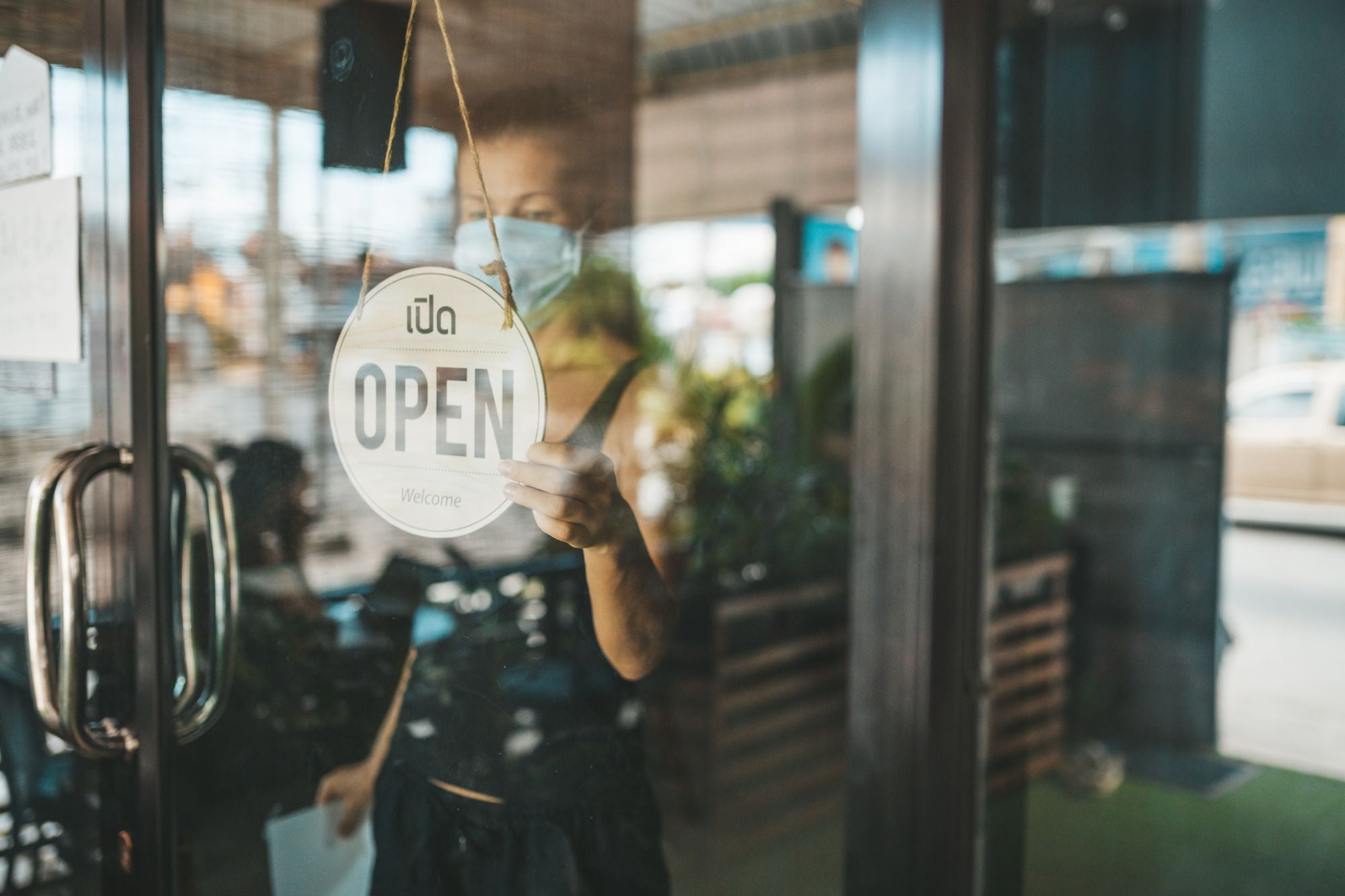
May 13, 2020 5 min read
Opinions expressed by Entrepreneur contributors are their own.
In early May, many states began loosening restrictions on business operations. In California, for example, Governor Newsom announced that bookstores, music stores, toy stores, florists, and some other retailers could reopen for pickup service. While restaurants were not a part of this first wave of reopenings, if all goes well, we could see them open their doors for seating in the next few weeks.
Many eateries are operating on pickup or delivery service at the moment, but in order to truly reopen, restaurant managers will need to figure out how to handle a crowd of customers in a time of continued caution and social distancing. It’s no easy task, but in anticipation of the coming reopening, owners should start planning now to facilitate the smoothest and safest transition back to business.
Here are five ways restaurant owners can prepare to reopen.
1. Train your staff online before they show up to work
The industry’s standards and operations have changed due to the pandemic, and it will be important to communicate new rules and methods to your restaurant employees. Before they come back to work, host a virtual training session for every team.
In these online training sessions, familiarize your employees with new mandates. Perhaps there will be disposable menus or contactless payment systems. Maybe silverware will be replaced with plastic utensils for the next few months. Consider videotaping a walk-through of the restaurant showcasing new items and policies, and play the footage during your training sessions. It’s also important to send out new restaurant policies and guidelines so your team has a reference handy if they need to look something up.
Related: Real Talk About How Restaurants Can Survive
2. Put up safety guidelines and posters throughout the restaurant
While your employees will be well trained to handle the reopening, your customers may not be at the start. Visual reminders will be crucial to not only keep them safe, but to protect your staff as well. If your cashier station is now contactless, put up signs with visual examples of the new process. Put marks on the floor six feet apart in places where lines may form.
In the bathroom, proper handwashing technique signs should be ubiquitous. Your bathroom policy itself might have to change to one-at-a-time, and signs should reflect that as well. This will inevitably be a learning experience for restaurant managers as the reopen progresses. Once you see patrons disobey a safety requirement multiple times, it may motivate you to create a sign specific to that behavior.
3. Limit the number of customers coming into the restaurant
As long as some level of social distancing is mandated by your state or city, your restaurant will need to limit the amount of guests inside your establishment at one time. This may require a change of layout to accommodate a smaller number of seats and more room between tables. This may also affect how you handle a waitlist; instead of letting a crowd wait outside, more reservations might have to be taken ahead of time.
You will need to consider traffic through your restaurant as well. Are there bottlenecks where guests pass shoulder to shoulder? These areas might have to be restructured to avoid close contact between individuals.
Finally, pickup and delivery locations may have to switch to curbside when your restaurant reopens for seating, just to alleviate the amount of people congregating near the front door.
Related: Liquor Shops, Pan Shops, Private Offices to Open
4. Prioritize the safety of employees
Your staff will have the most exposure to your rotating number of customers so it’s important to make sure that they have all the training and gear they need to stay safe both for themselves and your guests.
Invest in the necessary protective equipment to keep your staff safe, and help them feel safe as well. From masks to gloves to sneeze guards around cash stations to thermometers, these items will pay for themselves a thousand-fold if they prevent any one from getting sick. For example, using the right type of sanitizer for restaurants to fight coronavirus can be very helpful too. Just one case of coronavirus will shut down your restaurant for weeks, so do not skimp on the gear you need to keep your team protected, and your business open.
5. Create three separate teams in rotation
Finally, it might be best to divide your staff into two or three teams to rotate in on different shifts. This way, in the unfortunate scenario in which an employee does get sick, you can put one team on leave while the other teams continue coming in to work. While it may be difficult to juggle schedules, this extra layer of “insurance” can keep your restaurant from having to shut down again for weeks on end.
Make sure each team completely cleans and disinfects the restaurant at the end of their shift, taking care to wash any and all used cleaning supplies. You should allocate additional time for shift changes for this new level of deep cleaning. This way, each new team can come in without worry of contamination from the previous crew.
Once the country reopens for restaurants, it will be a trying time of change and experimentation. Prioritize safety first, as any misstep may result in closure and lost revenue. Stay diligent and your restaurant should slowly be able to recover its customers and its profitability.
Related: How the Gig Economy Helps Boost Diversity
This article is from Entrepreneur.com









